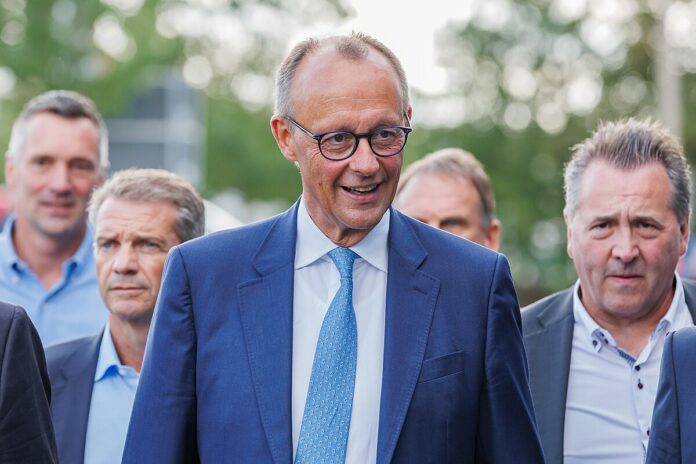German voters are going to the polls after an intense election campaign dominated by the country’s faltering economy and a succession of deadly attacks that have made migration and security a focal issue.
Friedrich Merz, the 69-year-old conservative leader, is in pole position to become Germany’s next chancellor in a vote closely watched in Europe and the US.
He promises to fix most problems in four years – a tall order for Europe’s biggest economy and a creaking infrastructure.
If Friedrich Merz’s Christian Democrats (CDU) win, he will need to forge an alliance with at least one other party, most likely Olaf Scholz’s Social Democrats, whose government collapsed late last year.
On the eve of the vote, he was adamant there would be no deal with the far-right Alternative for Germany (AfD), which is poised to become the second biggest political force, ahead of Olaf Scholz’s center-left party.
Some 59.2 million Germans are eligible to vote, and while millions already have by post, polls indicate as many 20% were undecided ahead of election day.
The polls close at 18:00 local time with a clear idea of a result likely to emerge during the evening.
Friedrich Merz promises strong leadership in Europe, but Berlin is also under pressure to loosen the budget strings for its military.
As Ukraine’s second-biggest provider of military aid, Germany’s next government will face a US president who has condemned President Volodymyr Zelensky as a dictator and fractured the West’s united front against Russia.

German political leaders have also been shocked by US Vice-President JD Vance, who has met the AfD’s candidate for chancellor, Alice Weidel, and called for an end to the long-standing taboo of talking to the far-right.
In Germany, that taboo is known as a firewall or brandmauer.
Friedrich Merz was accused of breaking it last month when he used their support in parliament. There were protests against the far-right in several German cities on February 22.
The AfD is already popular in several eastern states, but is rapidly growing in the west too, attracting support among younger Germans via TikTok.
One Weidel campaign video has had four million views.
Her message is simple: Vote AfD, break the firewall and change German politics.
The AfD wants a vote on leaving the EU if it can’t reform it, to scrap climate change measures, build nuclear power plants, and repair gas lines and relations with Russia.
The AfD has embraced a highly controversial policy called “remigration”, which it defines as deporting migrants who have committed crimes. But the term can also refer to the mass deportation of migrants and their descendants.
If fewer parties make it into the 630-seat Bundestag, it will be more straightforward to form a coalition with a majority.
The economic liberals, the Free Democratic Party (FDP), were in the outgoing government but risk oblivion on the day of the vote along with left-wing populist party BSW.
The Left party, however, has seen a resurgence in recent days and pollsters suggest it will become the fifth largest party after the Greens.
